Suetonius: The Twelve Caesars
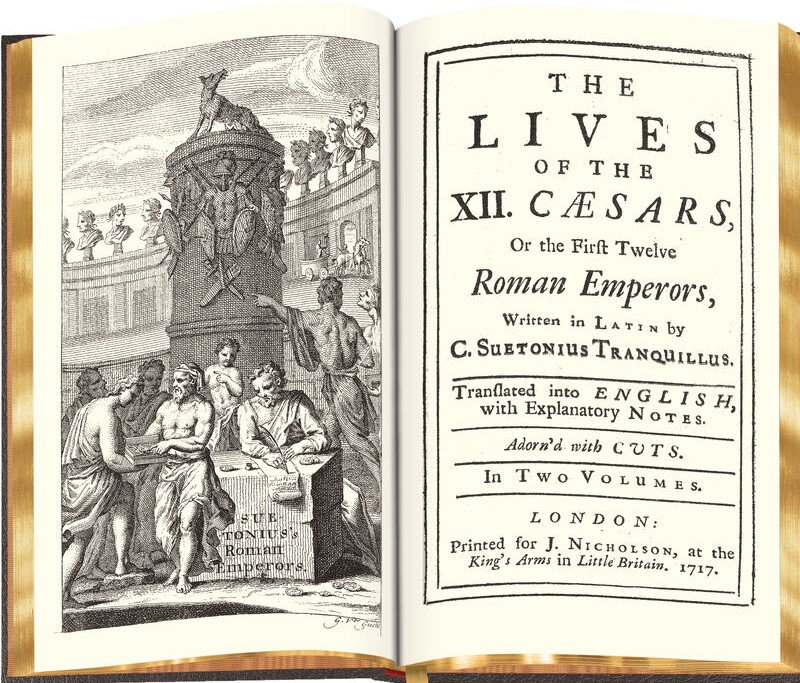

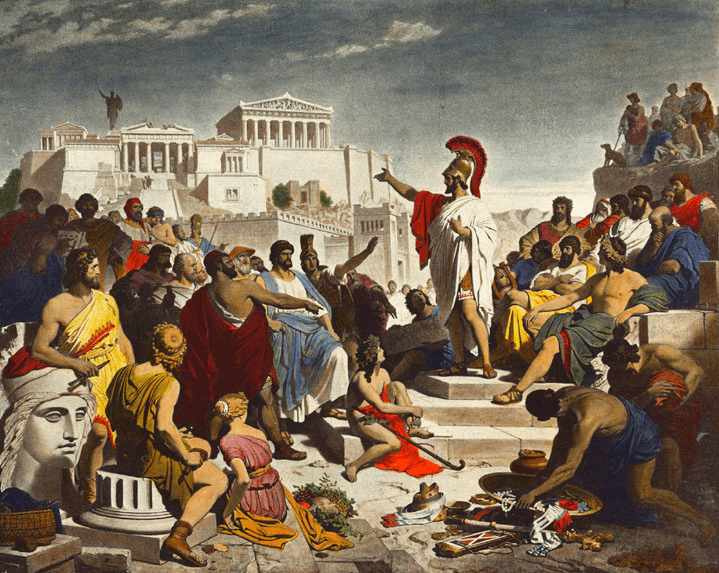
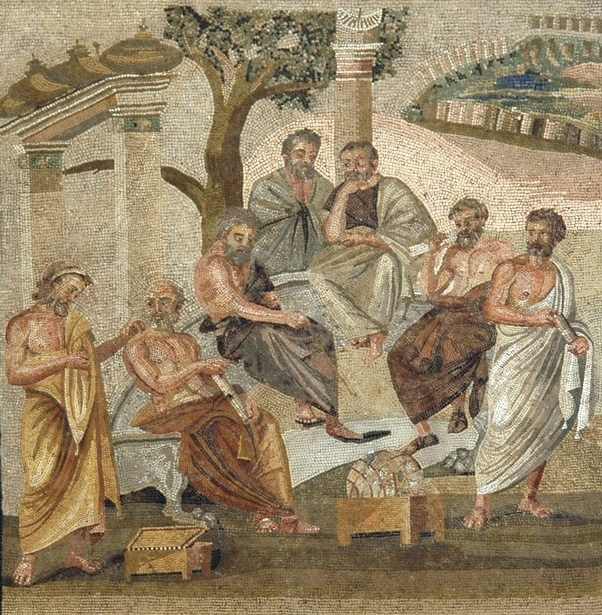
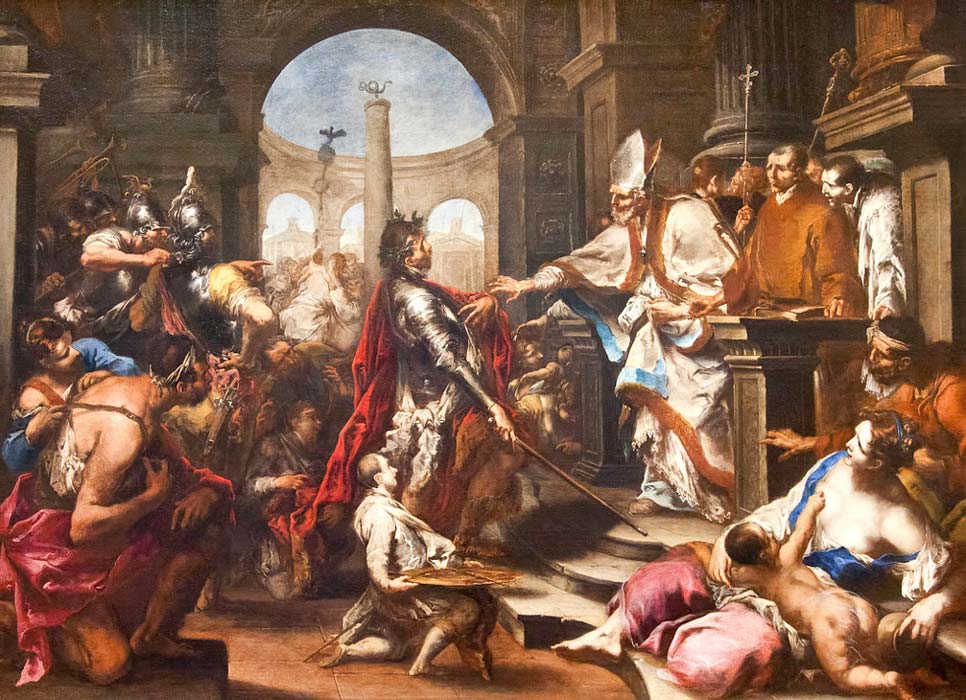
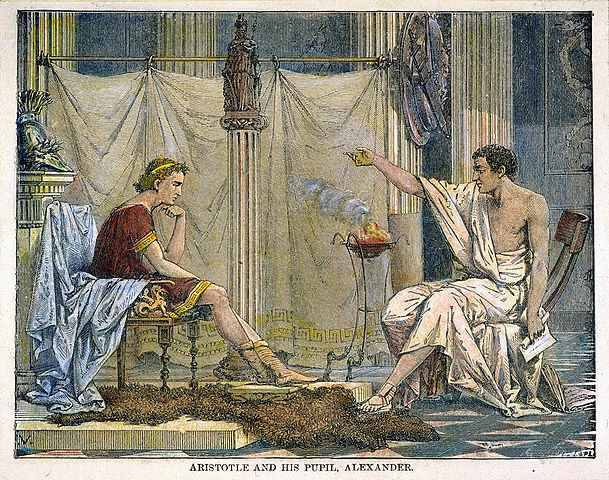
Written by Lydia Serrant, Contributing Writer, Classical Wisdom
Plutarch (AD46 – after AD 119) was a Platonic philosopher, essayist, biographer, magistrate, and a priest at the Temple of Apollo later in his life.
Plutarch was known for his involvement in all matters of society, taking on even the humblest of tasks. However, he is best remembered today for Parallel Lives, a series of biographies that followed prestigious Greeks and Romans, and Moralia a collection of essays, letters, and speeches that summarized his life’s work, beliefs, and teachings.
Moralia translated as ‘’Morals’’ or ‘’Matters concerning customs and mores’’ and consists of 78 essays and speeches. From questioning fate to the nature of music, Moralia sheds light on ancient Greek life and offers some of the deepest and most timeless wisdom.
Plutarch’s letter on listening was first delivered as a formal lecture and was later converted into a letter to his young friend Nicander, who was about to embark on the study of Philosophy.
While the letter is written to a youth about to enter a period of intense study, it contains lessons from which we could all benefit.
Plutarch’s descriptions of different kinds of listeners are as relevant today as they were then. The lazy listener, the scornful listener, those who listen with excitement, and the over-confident listener are just a handful of listening types he discusses.
Plutarch’s Listeners
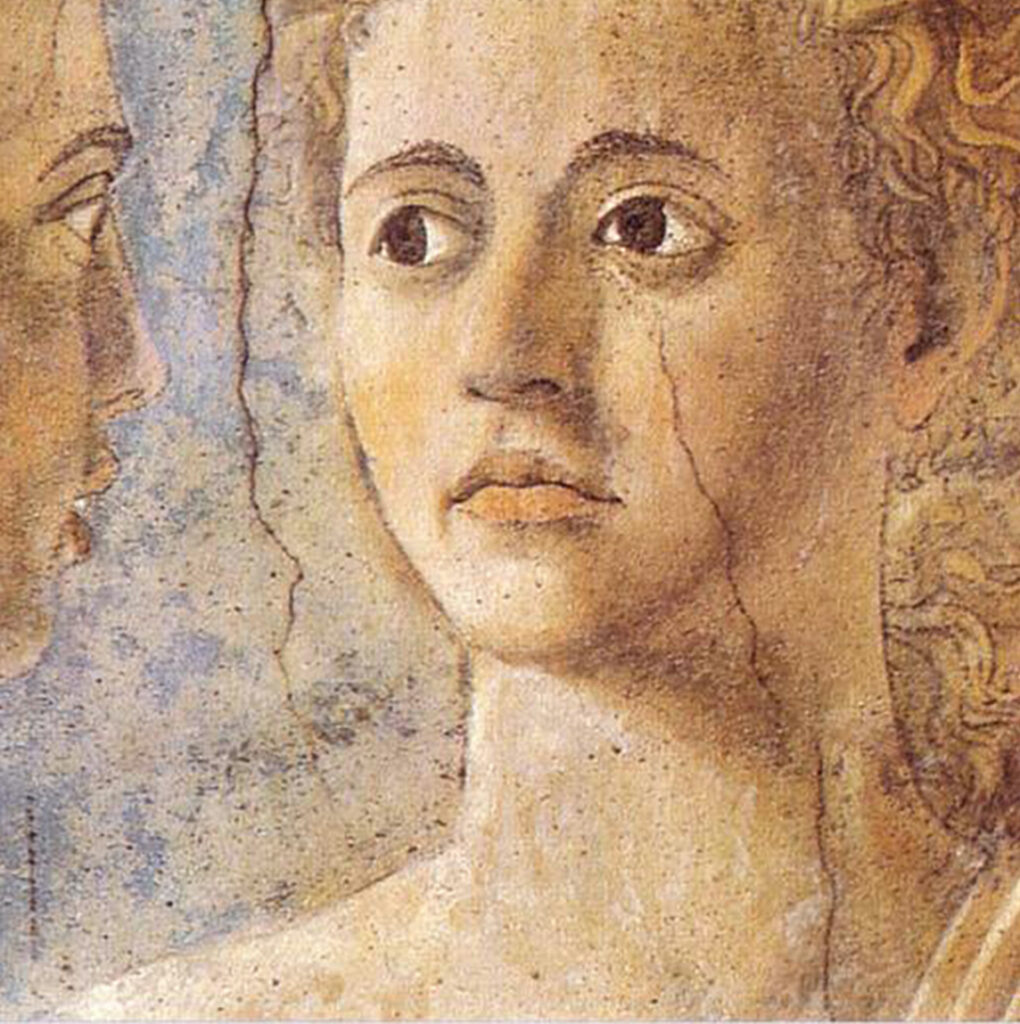
Listening to Lectures (De auditu), in Plutarch, Moralia, Vol. I, Loeb Classical Library No. 197 (1927)
The Selective Listener
Plutarch describes the selective listener as someone who is very good at listening – to what they want to hear.
This refers to the tendency to be most interested in hearing about topics that we find exciting and interesting, and how much easier it is to listen to long speeches from great orators or those we admire.
While most of us are guilty of this – no doubt there is great pleasure in listening to topics that one most enjoys – Plutarch warns that only listening to advice and opinions that are pleasing to the ear may mean we miss other important or useful information. Much good can be hidden away in ‘boring’ lectures or speeches from those we deem less interesting or desirable.
The Disapproving Listener
Most people will have listened to opinions that conflict with our values and meet with our disapproval. While there’s nothing wrong with disagreement, Plutarch encourages us to always keep an open mind. Most importantly, he urges us to listen to the speaker in their entirety first, without judgment.
Judgment or disapproval, Plutarch argues, is in itself a distraction of the mind. Those who attend speeches already in a state of disapproval are distracted, often comparing their own intelligence with that of the speaker, and/or observing others in the audience for signs of admiration and approval. In the process, much information is missed and the listener comes away less informed.
Disapproving listeners are at risk of distorting the information conveyed, rendering the whole experience useless.
Plutarch points out that when we have already decided we are against something, we’re likely to recall only what we consider to be the negative points. Great learning, he says, arises when we ponder and reflect on opinions that are opposite to our own.
The Over-Confident Listener
“In praising a speaker, we must be generous, but in believing his words cautious” – Plutarch
“Don’t believe everything you hear” is an adage as old as time. There are certain speakers we confide in due to their achievements, status or because they have previously given honest and useful advice. In that situation it becomes easier just to believe what you hear without a second thought and leave critical thinking at the door.
Plutarch advises us that no matter how much we admire the speaker, or how dazzling and entertaining the performance is, we must be a ‘heartless critic’ when evaluating the quality of the information we are receiving.
Plutarch did not believe that any speaker should be met with hostility, but warns us to be careful not to be swept away by the current. Just because someone may have useful information the first time, does not automatically qualify them to give good advice the second time. All information should be approached with a clear and critical mind, no matter who says it.
Listening as a Collaborative Process
One of the core lessons from Plutarch’s essay on listening is that the learning process does not solely rely on the speaker or educator. He continuously reminds us that responsibility also rests on the shoulders of the listener. Learning and informing requires the active participation of both parties.
Thus the listener would do well to reflect on the quality of their listening, be mindful of personal flaws, approach all information with caution, and not be afraid to ask questions.
Quality listening does not mean that the listener must be quiet, Plutarch adds. Questions are an important part of the listening process and should always be welcome, so long as they are related to the topic.
Plutarch believed that the major obstacle in learning from others is one’s own shortcomings and insecurities. To remedy this, proper behavior in all educational settings must be observed so that the information can be adequately understood and assessed without the interference of personal preferences.
Whether we tend to drift off during boring lectures or immediately dismiss speakers we dislike, as listeners we are active participants in the cultivation of ideas. Identifying barriers to our listening and learning, especially those we impose upon ourselves, is a crucial part of personal development and self-improvement.
References:
https://en.wikipedia.org/wiki/Moralia
https://www.loebclassics.com/view/plutarch-moralia_listening_lectures/1927/pb_LCL197.201.xml
https://www.e-ostadelahi.com/eoe-en/the-art-of-listening/
https://penelope.uchicago.edu/Thayer/E/Roman/Texts/Plutarch/Moralia/De_auditu*.html
https://philosophycourse.info/plutarchsite/plutarch-listening.html
By Eldar Balta, Contributing Writer, Classical Wisdom
Xenophon’s Early life
Not much is known of Xenophon from his early years, except that he was son of Gryllus, a wealthy citizen of Erchia, a suburb of Athens. He was born circa 430 BC, and not much is known of his life up to 401 BC. This is when he was, according to his work Anabasis, invited by his friend Proxenus to join the military expedition…one that marked his life and lifetime work. He became a mercenary for Cyrus the Younger against his elder brother, King Artaxerxes II of Persia.
There was, however, one small problem. He was not aware of that fact.
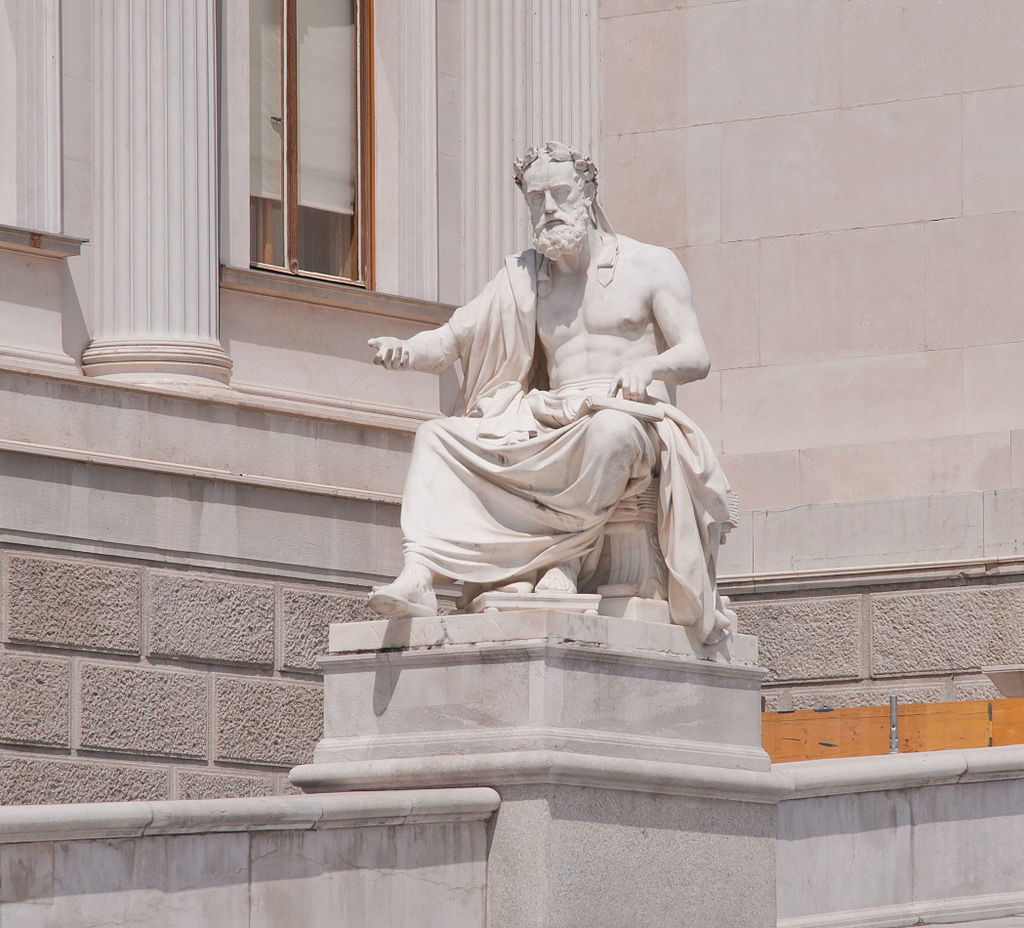
Xenophon in front of the Austrian Parliament Building in Vienna
Xenophon and his Ten Thousand men
This endeavor was hugely influential for both Xenophon, as well as military leaders throughout history. In the end, it provided important lessons on military logistical operations, flanking maneuvers, feints, attacks in specifics and retreat, in general.
Why retreat, you ask? Well, mostly because that’s exactly what the Greeks did. They were expecting a much easier obstacle, a Persian satrap named Tissaphernes (do not forget this name, we will come back to him later). Instead, they faced a great Persian army. Moreover, soon into the expedition the main financial and logistical provider, Cyrus, was killed in the middle of a battle. The chain of events got even worse when shortly thereafter, Greek leaders, generals, and captains were invited to a peace conference… where they were betrayed and executed.
So, the Greek army was left with a simple plan. One, retreat. Two, have Xenophon lead the way back home.
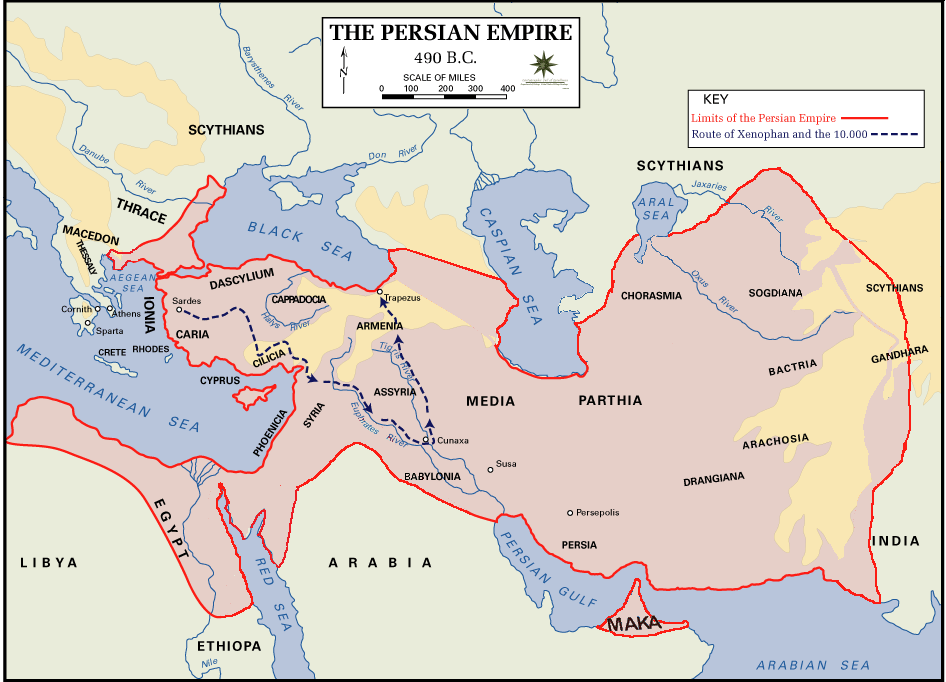
The Route of Xenophon’s Ten Thousand Men
Anabasis, one of Xenophon’s greatest works, is where you can read in detail his struggles and strategies. This epic adventure is the reason why “the centuries since have devised nothing to surpass the genius of this warrior”, as quotes military historian Theodore Ayrault Dodge. We, however, will cut the story short here and say that he got his men safely back home.
Tissaphernes – a name we told you not to forget
Tissaphernes was a Persian satrap and a historical knot that entangles many individual destinies as well as the regions Persia, Athens, and Sparta, among others.
First, he got in between two brothers – Persian King Artaxerxes II and his younger sibling Cyrus the Younger (a price he will pay with his life to their mother Parysatis). After first betraying Cyrus, and later killing him at the Battle of Cunaxa, Tissaphernes pursued Xenophon and his Ten Thousand men in retreat with a vast force. We already said that Xenophon brought his men home, but Tissaphernes became an enemy of both Sparta and Athens because of all the events mentioned above.
Now, it’s important to remember at this moment that Athens and Sparta were not particularly friendly to each other… indeed, they were sworn enemies. Despite this, Xenophon of Athens (as he was called) did not hide his profound admiration for Sparta and Spartan leaders (Agesilaus II and Lysander, in particular).
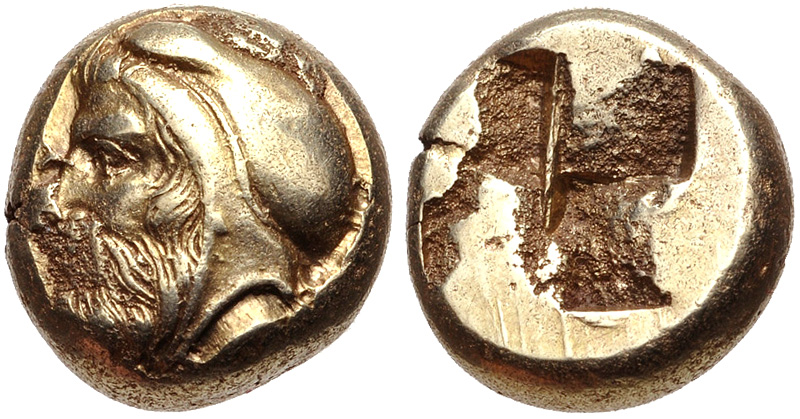
Coinage of Phokaia, Ionia, circa 478-387 BC. Possible portrait of Satrap Tissaphernes, with satrapal headress.
But Tissaphernes was the main reason why Xenophon came to respect the military wisdom of the Spartans. While he was seeking refuge from Tissaphernes, he noticed the respect Spartan leaders had for one another while successfully fighting the Persian satrap in Asia Minor.
So much, in fact, that he mentioned them extensively in his works Anabasis, Agesilaus, Polity of the Lacedaemonians, and Hellenica.
Excerpt from Agesilaus, Xenophon:
«It would be hard to discover, I imagine, anyone who in the prime of manhood was as formidable to his foes as Agesilaus when he had reached the limit of mortal life. Never, I suppose, was there a foe-man whose removal came with a greater sense of relief to the enemy than that of Agesilaus, though a veteran when he died. Never was there a leader who inspired stouter courage in the hearts of fellow-combatants than this man with one foot planted in the grave. Never was a young man snatched from a circle of loving friends with tenderer regret than this old graybeard.»
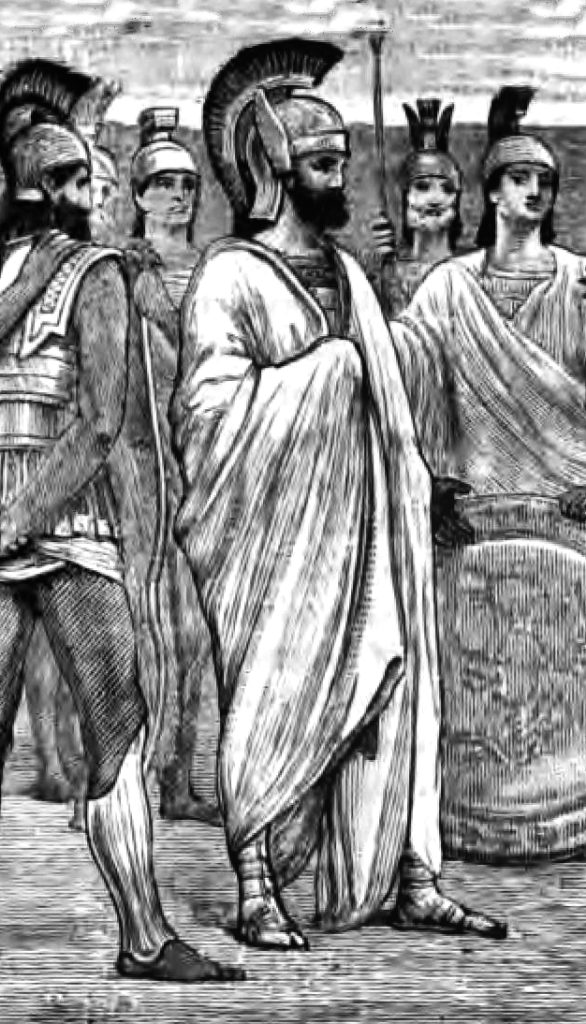
Spartan King Agesilaus
Excerpt from Hellenica, Xenophon shows the relationship between the Spartan Rulers, in particular the king Lysander and king Agesilaus:
“But here was Lysander back again. Everyone recognized him and flocked to him with petitions for one favour or another, which he was to obtain for them from Agesilaus. A crowd of suitors danced attendance on his heels and formed so conspicuous a retinue that Agesilaus, anyone would have supposed, was the private person and Lysander the king.
«All this was maddening to Agesilaus, as was presently plain. As to the rest of the Thirty, jealousy did not suffer them to keep silence, and they put it plainly to Agesilaus that the super-regal splendor in which Lysander lived was a violation of the constitution.
«So when Lysander took upon himself to introduce some of his petitioners to Agesilaus, the latter turned them a deaf ear. There being aided and abetted by Lysander was sufficient; he sent them away discomfited.
«At length, as time after time things turned out contrary to his wishes, Lysander himself perceived the position of affairs. He now no longer suffered that crowd to follow him and gave those who asked him help in anything plainly to understand that they would gain nothing, but rather be losers, by his intervention.
«But being bitterly annoyed at the degradation put upon him, he came to the king and said to him: “Ah, Agesilaus, how well you know the art of humbling your friends!” “Ay, indeed,” the king replied: “Those of them whose one idea it is to appear greater than myself. If I did not know how also to requite with honour those who work for my good, I should be ashamed.”
«And Lysander said: “Maybe there is more reason in your doings than ever guided my conduct” adding, “Grant me for the rest one favour, so shall I cease to blush at the loss of my influence with you, and you will cease to be embarrassed by my presence. Send me off on a mission somewhere; wherever I am I will strive to be of service to you.”
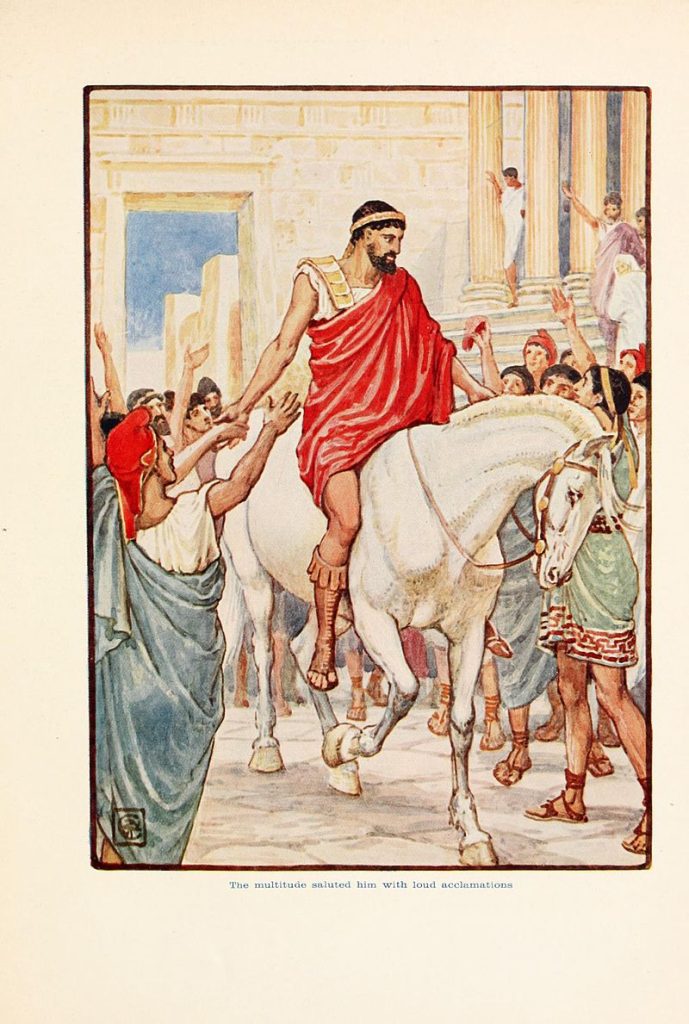
The multitude saluting Lysander with loud acclamations.
Apostle of Socrates
From Xenophon’s excerpts on Sparta, as well as from other historical facts, we must understand two things before we can go to one of the most important roles Xenophon played in the history of humankind.
One, Athens was on its decline and the trial of Socrates only illustrated how Athens represented, or rather failed to represent, a pedestal of democracy. Sparta, on the other side, as Xenophon underlines “even though among the most thinly populated of states, was evidently the most powerful and most celebrated city in Greece. And I fell to wondering how this could have happened. But when I considered the institutions of the Spartans, I wondered no longer.”
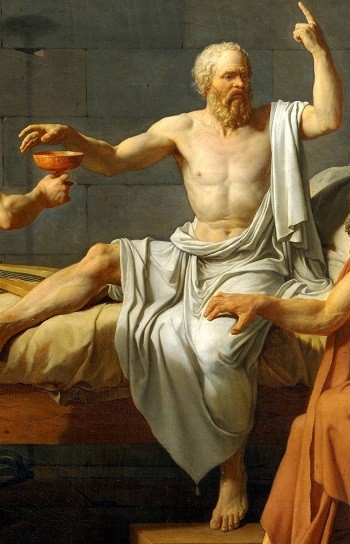
The Death of Socrates
Second, Sparta was admired as a whole, envied because of its unity. Athens, however, produced magnificent individuals, who were free to question, write, and influence one another, even if it meant an inevitable fall in the end, as Socrates clearly demonstrates.
Thus, it is very important to appreciate this polarity both in general and with regards to Xenophon specifically. Xenophon had the opportunity to perceive both sides and thus produce works that reflect a wider, more honest, spectrum of Ancient Greece.
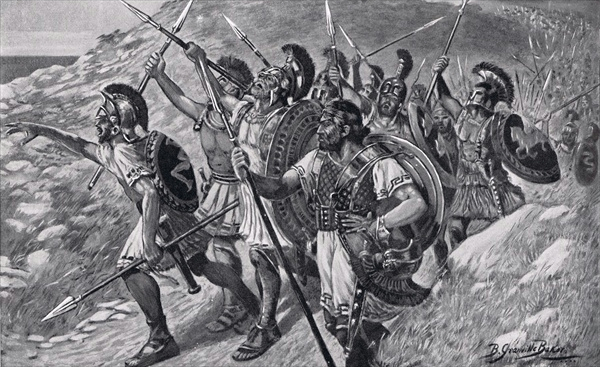
Thalatta! Thalatta! (The Sea! The Sea!) — painting by Bernard Granville Baker, 1901 – A famous scene from Xenophon’s works
Xenophon’s admiration for Sparta was only equalled by his love for his mentor, the first moral philosopher of the Western ethical tradition of thought, Socrates.
Memorabilia, Apology, Oeconomicus, and Symposium were all Xenophon’s gospels to Socrates. He admired his teacher very much (along with fellow protege Plato). So much so that some conjecture that Socrates would not have been sentenced to death if Xenophon had been in Athens instead of on a military expedition in Persia.
Per Diogenes Laërtius, a biographer of the Greek philosophers:
“They say that Socrates met Xenophon in a narrow lane, and put his stick across it and prevented him from passing by, asking him where all kinds of necessary things were sold. And when he had answered him, he asked him again where men were made good and virtuous. And as he did not know, he said, ‘Follow me, then, and learn.’ And from this time forth, Xenophon became a follower of Socrates.”
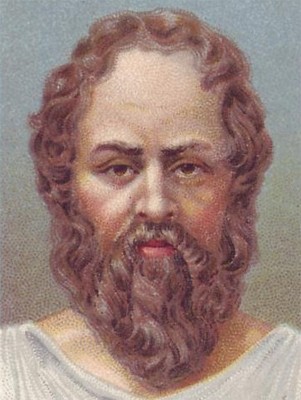
Drawing of Socrates
Xenophon’s Works
Xenophon was greatly prolific. Of the 14 works we know of, they can be broadly categorized into three categories. His ‘Historical and biographical’ works include: Anabasis, Cyropaedia, Hellenica, Agesilaus, and Constitution of the Lacedaemonians.
Next are his ‘Socratic’ works, which are: Memorabilia, Apology, Oeconomicus, and Symposium. Finally his ‘other’ works are: Hiero, On Horsemanship, Hipparchikos, Hunting with Dogs, and Ways and Means.
Xenophon’s Death
There is no firm record on how Xenophon spent his last days. There is one version of him being exiled (or self-exiled) from Athens to Scillus and later in Corinth. It is estimated that he died circa 354 BC.
It is recorded that he had two sons, Gryllus and Diodorus, who fought at the Battle of Mantinea as members of the Athenian army.
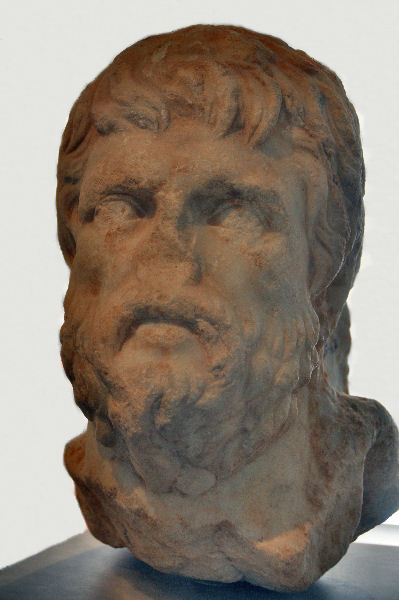
Xenophon, Aphrodisias Museum
Xenophon’s Achievements and Legacy
Aside from what we have previously mentioned, it is important to emphasize that Xenophon was a sort of practical philosopher. This is what made him a successful military strategist, leader, soldier, politician, poet, and historian.
His Anabasis was used as a field guide by none other than Alexander the Great during the early phases of his expedition into Persia. Moreover, Memorabilia had a huge and important impact on the Founding Fathers of the United States, Benjamin Franklin and John Adams, in particular. Clearly Xenophon’s influence on mankind can not be overstated.
By Ben Potter
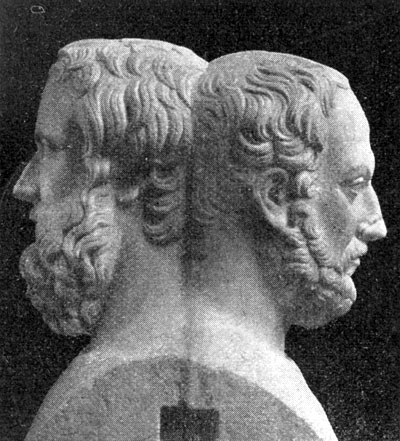
Herodotus and Thucydides
There has been a great deal of focus on the differences between Herodotus and Thucydides. Both men have been granted the ‘father of history’ accolade, but chronologically Herodotus must be the winner of the distinction as Thucydides picks up where he leaves off.
For those in need of a quick recap, Herodotus was born circa 484 BC into a sophisticated family in the Persian-loyal city-state of Halicarnassus (modern Bodrum, Turkey). Having grown up with a privileged background, a good education and a window to the outside world, it should not be surprising that Herodotus became the traveller and chronicler he did.
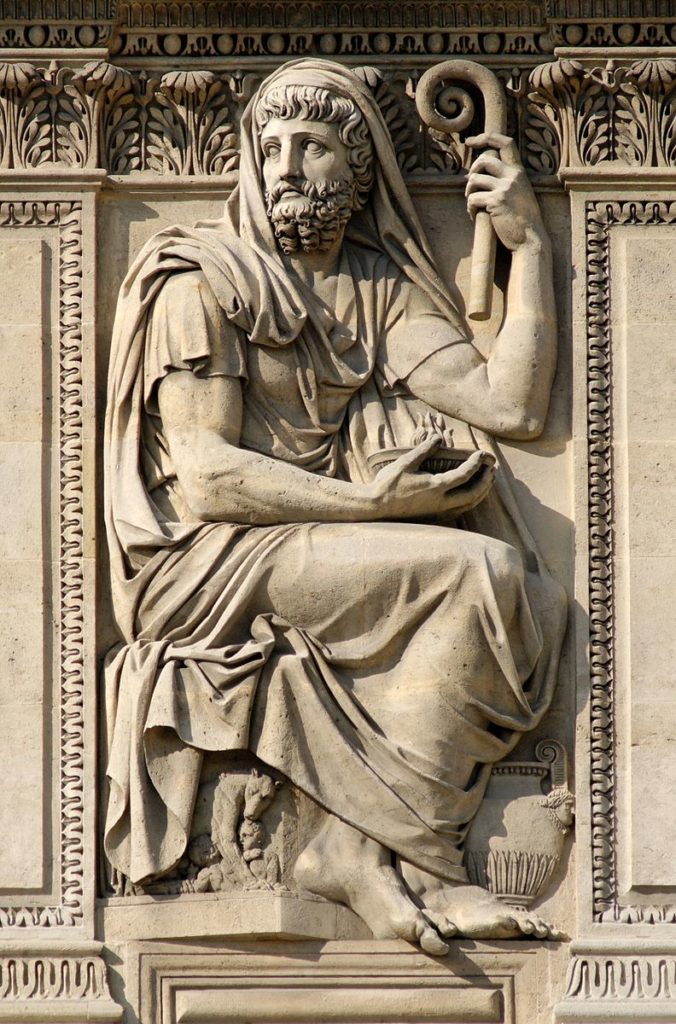
Herodotus by Jean-Guillaume Moitte, 1806. Relief on the right of the left window, right part of the west façade of the Cour Carrée in the Louvre Palace, Paris.
Visits to Egypt, Greece, Tyre, Babylon and Italy are reported with enough veracity to suggest that they really occurred – e.g. he considered Egypt an ‘opposite land’ as the Nile flooded in the summer. It was these journeys that he chronicled into his magnum opus, The Histories.
The Histories was never fully taken on face value and never will be, but as more and more evidence builds up to vindicate Herodotus (e.g. he described Gelonus, a gigantic Scythian city which was only discovered in 1975) it becomes harder to dismiss him entirely as a fantasist, a defamer, or a fraud.
Meanwhile, Thucydides, was born in 460 BC in the center of the Ancient Greek world, Athens, but had considerable influence in Thrace due to owning gold mines. He is most famous for his History of the Peloponnesian War, which detailed the ongoings of the war between Athens and Sparta.
In the beginning he experienced the epic conflict first hand as an Athenian General…until he lost a crucial battle and was greatly disgraced. This action led to his exile, a surprising benefit and important step to becoming the outsider recorder of events.
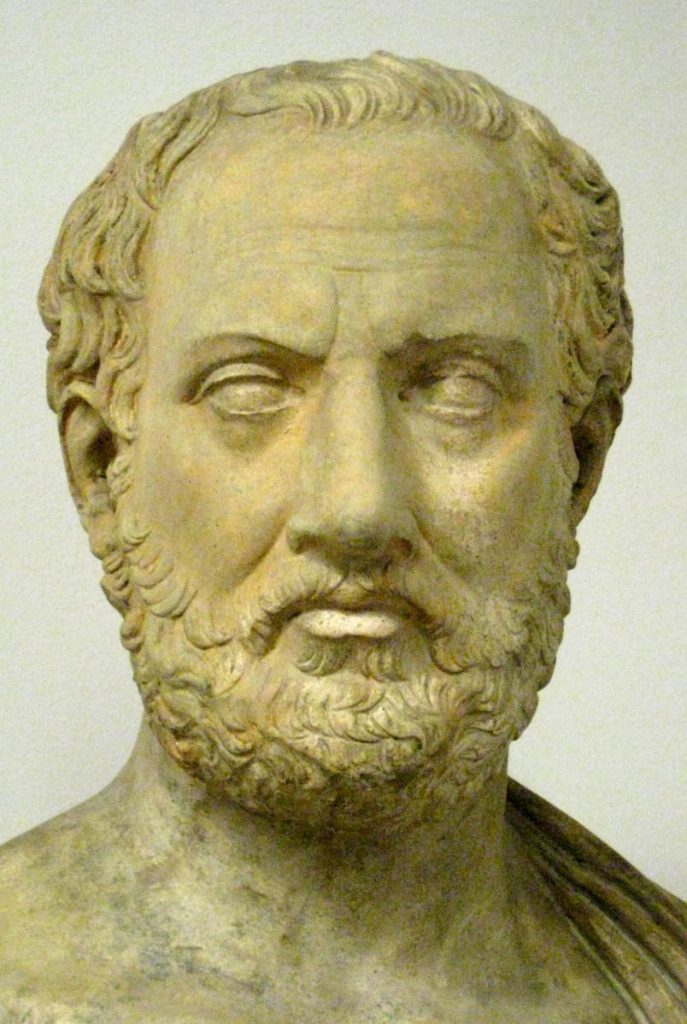
This is the plaster cast bust currently in exposition of Zurab Tsereteli’s gallery in Moscow (part of Russian Academy of Arts), formerly from the collection of castings of Pushkin museum made in early 1900-1910s.
Original bust is a Roman copy (c. 100 CE) of an early 4th Century BCE Greek original, and is located in Holkham Hall in Norfolk, UK.
With essential historical data conveyed, we can return back to our comparison and contrast of the two historians. The differences between Herodotus and Thucydides are in style, interpretation and purpose.
Herodotus passes no judgement, but reports what he has heard, even when plainly ridiculous. Also, he is more holistic; concerned with nature, culture, speech, art, with the cornucopia of the human condition. Thucydides is reporting on war, and war alone.
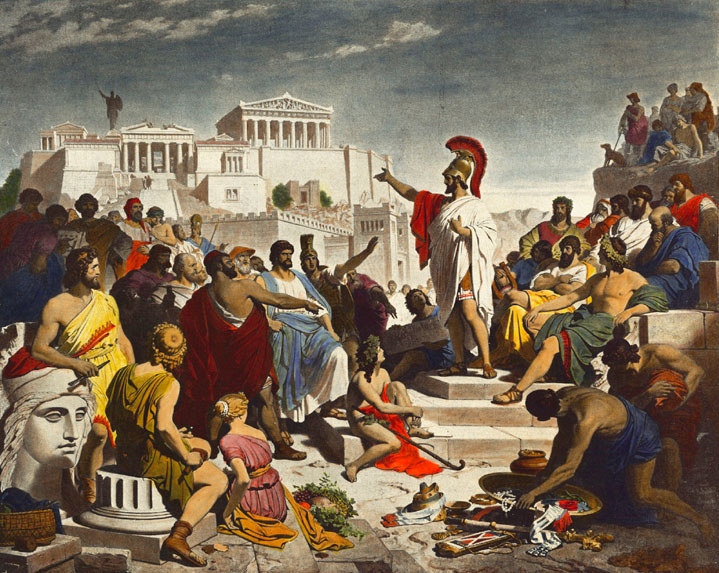
Pericles’ Funeral Oration was a famous part in “The History of the Peloponnesian War”.
Pericles’ Funeral Oration by Philipp Foltz (1852)
Another key difference is that Herodotus’ chronicles show what moral lessons can be learnt. Thucydides isn’t concerned with morality, but pragmatism. He thinks men’s mistakes come in the deed, not the thought.
It is for this devotion to the pragmatic that Thucydides, together with Niccolo Machiavelli and Thomas Hobbes, is considered the father of political realism – in other words, the need for a nation to be militarily and economically powerful rather than good, just or ethical.
This legacy flourishes right up to the modern day; Thucydides’ text is still standard issue at the U.S. Naval College in Newport.
In truth it is not really fair to compare Herodotus to Thucydides. Herodotus is a strange amalgam of Homer, Polybius and Pliny the Elder. He isn’t an historian, but an holistic compiler, almost an encyclopedia writer. Actually we’ve made an historiographical soap-opera out of a rivalry that doesn’t really exist.
But, supposed rivalry aside, it would be unfair and churlish to dwell on the limitations or bias of such a great and innovative source as Thucydides. This is a period of history which included such great writers as Plato, Sophocles, Euripides and Aristophanes – none are more enlightening on the politics of the times than our exiled historian.